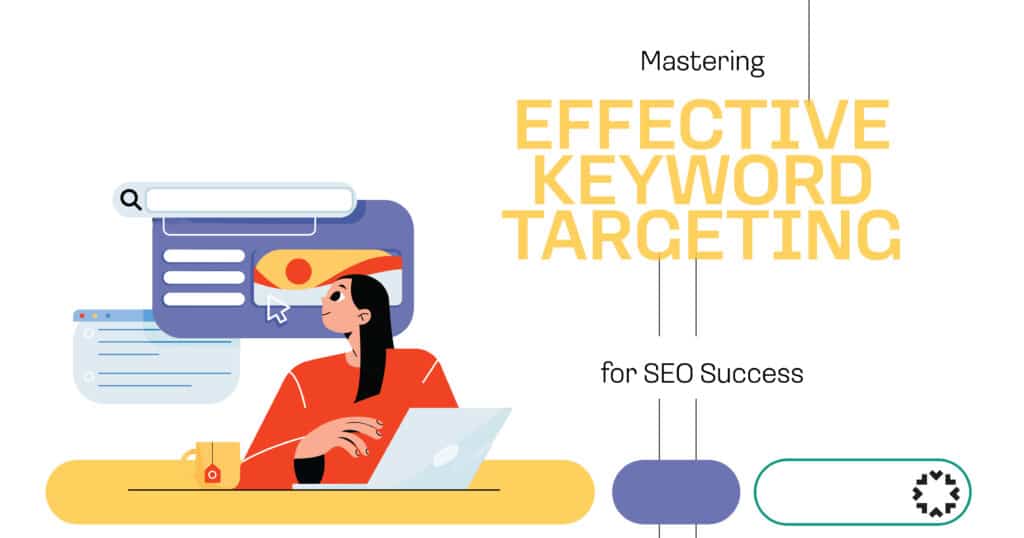SEO search engine optimization is the art and science of earning organic visibility – turning casual browsers into loyal customers. From search engine marketing to digital marketing, online marketing, keyword research, content marketing, link building, website optimization, and organic search, this blog reveals how to master keyword targeting for sustained SEO success. Whether you’re launching a new site or refining an established one, understanding how these elements interconnect creates a powerful engine for long-term growth that compounds over time.
Understanding the Role of Digital Marketing in SEO
Digital marketing serves as the ecosystem where SEO search engine optimization thrives, creating multiple touchpoints that reinforce search visibility and user engagement. While SEO focuses on earning organic traffic through relevance and authority, digital marketing amplifies these efforts across channels to create a cohesive brand presence that search engines reward with higher rankings.
How Search Engine Marketing Supports Online Growth
Search engine marketing (SEM) combines paid and organic strategies to accelerate visibility when SEO alone needs time to mature. PPC campaigns deliver immediate traffic while revealing high-converting keywords that inform organic content strategy. The synergy creates a flywheel effect – paid ads test messaging that SEO scales sustainably.
The table compares SEM vs. SEO:
| Aspect | SEM (Paid) | SEO (Organic) | Combined Impact |
| Speed | Immediate results within hours of launch | Gradual growth over 3-6 months | Instant testing + long-term compounding |
| Cost | Pay-per-click model with daily budgets | Investment in content and technical resources | Budget efficiency with scalable returns |
| Position | Top of SERP with ad label | Natural results below ads | Complete SERP dominance |
| Trust | Lower due to the commercial intent signal | Higher through earned positioning | Balanced credibility across user journey |
| Scalability | Limited by advertising budget | Limited by content production capacity | Maximum market coverage with strategic allocation |
The Importance of Keyword Research
Keyword research forms the foundation of every successful SEO search engine optimization campaign, revealing exactly what your audience searches for and how competitive those terms are. Without thorough research, even brilliant content misses its mark, while targeted keywords connect your expertise with user intent at the precise moment they’re ready to engage.

Targeting the Right Keywords for SEO Success
Targeting begins with understanding search intent – informational queries seek knowledge, navigational find specific sites, commercial investigate options, and transactional aim to purchase. Long-tail keywords with lower competition often convert better despite lower volume because they match specific user needs. Seasonal and emerging trends add timely relevance that boosts short-term traffic spikes.
The table shows keyword types:
| Keyword Type | Example | Search Volume | Competition |
| Head | “shoes” | 100K+ monthly searches | Extremely high – major brands dominate |
| Body | “running shoes” | 10K-50K monthly searches | High – category leaders compete |
| Long-tail | “best running shoes for flat feet women” | 100-1K monthly searches | Low – specific intent, easier ranking |
| Question | “how to choose running shoes” | 1K-10K monthly searches | Medium – featured snippet opportunities |
Strategies for Effective Content Marketing
Content marketing transforms keyword research into valuable assets that attract, engage, and convert visitors while building topical authority that search engines recognize and reward. The most successful strategies create content clusters around pillar topics, establishing your site as the go-to resource for specific subjects.
Aligning Content with Keyword Research for Maximum Impact
Aligning content requires mapping keywords to user journey stages – top-funnel informational pieces build awareness, middle-funnel comparison guides nurture consideration, and bottom-funnel product pages drive conversions. Content upgrades like downloadable checklists or templates increase dwell time and email capture. Regular updates to evergreen content maintain relevance and ranking power.
Building Authority Through Link Building
Link building remains a cornerstone of SEO search engine optimization because external links serve as votes of confidence from other sites, directly influencing domain authority and ranking potential. Quality matters more than quantity – contextual links from authoritative, relevant sites carry significantly more weight than directory listings or comment spam.
Smart Approaches to Enhance Search Engine Visibility
Smart approaches include the skyscraper technique, where you identify top-ranking content, create something 10x better, and reach out to sites linking to the original. Broken link building finds dead links on resource pages and offers your content as a replacement. HARO (Help a Reporter Out) connects you with journalists seeking expert quotes for high-authority placements.
The table outlines link types:
| Link Type | SEO Value | Acquisition Difficulty | Example |
| Editorial | Highest – natural context from trusted sources | Very high – earned through excellence | New York Times feature |
| Guest Post | High control over anchor text and context | Medium – requires outreach and quality content | Forbes contributor article |
| Resource Page | Medium – curated lists of helpful tools | Low – find and pitch relevant pages | “Best SEO tools 2024” list |
| Directory | Low – unless highly niche and vetted | Very low – submission forms | Local chamber of commerce |
Best Practices in Website Optimization
Website optimization ensures search engines can crawl, index, and understand your content while delivering exceptional user experiences that keep visitors engaged. Technical excellence combined with user-centric design creates the foundation for sustainable organic growth.
Leveraging Organic Search for Long-Term SEO Results
Leveraging organic search requires E-E-A-T demonstration through author expertise, comprehensive content that fully answers queries, and technical perfection that enables flawless crawling. Regular content refreshes signal freshness to Google while user engagement metrics like time on page and bounce rate influence quality scores. Internal linking architecture distributes authority throughout the site while guiding visitors to related content.
Achieve SEO Success with BloomHouse Marketing’s Expertise
When keyword targeting feels like guessing in the dark, expert guidance illuminates the path to measurable results. At BloomHouse Marketing, we master SEO search engine optimization through comprehensive search engine marketing integration, digital marketing synergy, and online marketing precision. From advanced keyword research to content marketing excellence, link building mastery, and website optimization perfection for organic search dominance, our proven strategies deliver sustainable growth. Contact BloomHouse Marketing today to learn more or schedule your SEO success consultation. Watch your digital presence flourish.

FAQs
What are the key components of search engine marketing that can boost digital marketing efforts?
Key components include PPC campaigns with targeted keyword bidding that deliver immediate traffic, compelling ad copy featuring clear calls-to-action that improve click-through rates, and remarketing strategies that re-engage previous visitors across the web. Landing page optimization ensures message consistency between ads and content while integrated analytics track return on investment across all channels. This combination accelerates brand visibility while informing organic SEO strategies.
How can keyword research enhance online marketing strategies and improve organic search rankings?
Keyword research reveals specific search terms users employ at different journey stages, enabling content creation that precisely matches intent and improves relevance signals to Google. It identifies low-competition opportunities that allow newer sites to rank faster while uncovering seasonal trends for timely campaigns. Proper implementation throughout titles, headers, and the content body strengthens topical authority and organic positioning.
What are effective content marketing strategies that support website optimization and drive traffic?
Effective strategies include the pillar-cluster model, where comprehensive pillar pages link to detailed cluster content, creating topical authority that search engines reward with higher rankings. Content upgrades like downloadable resources increase dwell time and email capture, while regular publishing signals site freshness. User-focused content that solves specific problems earns natural backlinks and social shares that further boost visibility.
How does link building contribute to a successful online marketing campaign and enhance search engine visibility?
Link building from authoritative, relevant sites signals trust and expertise to Google, directly increasing domain authority scores that influence ranking potential across all keywords. Quality editorial links from guest posts or resource pages carry significantly more weight than quantity-focused approaches. These links also drive referral traffic and amplify content reach through increased social sharing.
What are the best practices for optimizing a website to achieve long-term success in organic search results?
Best practices include implementing a mobile-first responsive design that adapts seamlessly across devices, achieving page speeds under three seconds through image optimization and caching, and securing the site with HTTPS encryption. Create comprehensive XML sitemaps for efficient crawling while building internal linking structures that distribute authority. Regular technical audits combined with content freshness updates ensure sustained performance in organic search









